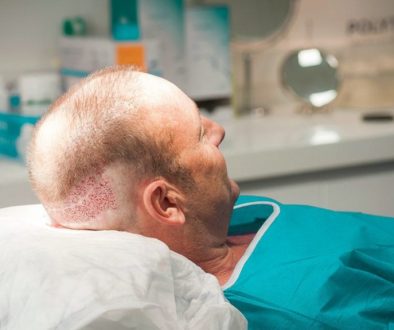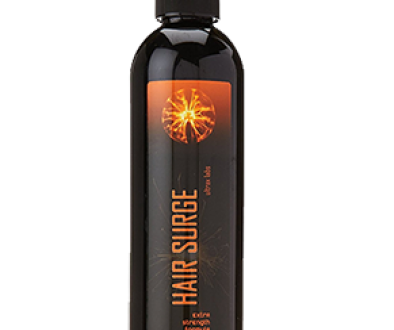Pantostin (Alfatradiol) as a Female Pattern Hair Loss Treatment
Alfatradiol as a Treatment for Female Pattern Hair Loss
Balding women seemingly have fewer options when it comes to treating their hair loss condition. Currently, the only FDA approved hair loss treatment for women is Rogaine 2% (minoxidil).
But are there other treatments for hair loss available to women?
A woman suffering from female pattern baldness recently asked about Alfatradiol, the active ingredient found in a medication called Pantostin on our hair restoration forum.
After doing some research, I found that Alfatradiol 0.025% topical solution has been approved for those suffering from Androgenetic Alopecia (genetic hair loss) as a hair loss medication for both safety and efficacy in Germany along with Rogaine (minoxidil). Alfatradiol is available without prescription and can be found in German pharmacies. Alfatradiol is not approved as a hair loss drug nor seemingly available in the United States.
A clinical study performed in Germany seemed to reveal that Alfatradiol may perform well at slowing down or stopping the progression of hair loss whereas minoxidil proved to increase hair density and overall hair shaft thickness.
The study can be found below:
—————–
Comparison of the efficacy and safety of topical minoxidil and topical alfatradiol in the treatment of androgenetic alopecia in women:
BACKGROUND:
Two drugs which are approved for the treatment of androgenetic alopecia in women in Germany were compared with regard to their influence on hair growth.
PATIENTS AND METHODS:
Patients were randomized to group I (n = 52) who used 2% minoxidil solution twice daily for a period of 12 months or to group II (n = 51) who used 0.025% alfatradiol solution once daily for 6 months and were then switched to 2% minoxidil solution for months 7-12. Changes in hair growth parameters were determined using the TrichoScan.
RESULTS:
Topical treatment with 2% minoxidil solution for 6 months resulted in a significant increase of cumulative hair thickness (p < 0.0001) and absolute hair density (p < or = 0.0025), whereas these parameters of hair growth remained nearly unchanged after 6 months of treatment with alfatradiol solution. Evaluation of the same parameters from month 7 to month 12 demonstrated that 12 months minoxidil treatment resulted in an increasing stabilization (group I). After the alfatradiol –>minoxidil switch in group II a significant increase in cumulative hair thickness (p < 0.0001) and absolute hair density (p < 0.0001) was achieved. Both study medications were well tolerated.
CONCLUSIONS:
Treatment with minoxidil can induce an increase in hair density and hair thickness, whereas treatment with alfatradiol results in deceleration or stabilization of hair loss.
——————-
The study above seems to present that minoxidil is superior to alfatradiol in that it has the potential to regrow hair whereas alfatradiol may have the potential to stabilize an existing hair loss condition.
Alfatradiol however, does not appear to be available for purchase at this time in the United States.
Bill
Associate Publisher of the Hair Transplant Network and the Hair Loss Learning Center
View my Hair Loss Weblog
Technorati Tags: Female Pattern Hair Loss, Balding, FDA approved, hair loss treatment, minoxidil, treatments for hair loss, female pattern baldness, Alfatradiol, Pantostin, Androgenetic Alopecia, hair loss medication, Rogaine, hair loss drug, hair loss, hair density, topical minoxidil, topical alfatradiol, hair growth, TrichoScan, hair thickness, regrow hair




May 26, 2015 @ 8:11 am
I have been using pantostin over 2 years now and I haven´t notices sides effects. The hairloss is considerably less than before.However if one stops the
Treatment the hairloss starts again.
June 7, 2010 @ 10:15 am
Lena,
In my research of Pantostin (alfatradiol), I couldn’t find a listing of potential side effects. That doesn’t mean there aren’t any however, they don’t seem to be publicized very many places online. I imagine whomever sells Pantostin should be able to provide you with a listing.
Best wishes,
Bill Seemiller
June 4, 2010 @ 11:14 pm
what are the side effects to both treatments. You mentioned that they were both well tolarated, but are there any side possible side effects? And Can it be used on eye brows?